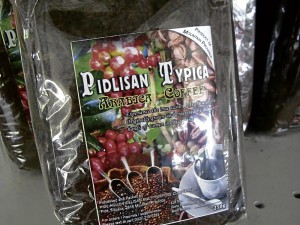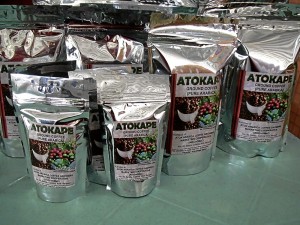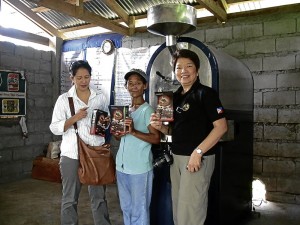Call them heirloom varieties just like “old world” wine.
Coffee in the Benguet, Mountain Province and Ifugao are some of the best Arabica coffee strains.
Many coffee enthusiasts have cornered the markets in the Cordillera and most of the coffee are “spoken for” even before harvest starts around November of every year.
The coffee stakeholders have been conducting meetings and seminars to address the lack of supply of Arabica from the Cordillera Administrative Region (CAR). Many farmers have gone into nursery establishment and seedling production to address the lack of certified seeds and the existence of “wildlings” as planting materials.
Last July 5 and 6, Benguet State University in La Trinidad, Benguet province was the site of a coffee fiesta where stakeholders shared best practices and encouraged the continued 
The DTI-CAR has also initiated coffee roasting and cupping seminars to allow farmers to add value to their produce. The first pilot seminar was conducted by the Philippine Coffee Board Inc. (PCBI) directors Manny Torrejon and Chit Juan in Tabuk City, Kalinga last June 20-22.
“We can increase a farmer’s income if she can “wet process” the coffee and roast it properly, says Chit Juan, PCBI president.
Chit already buys from women communities for supply to global companies who seek coffee from women and sold by women-led companies as well.

This will be during the harvest season where the “Pick Red” campaign of the Coffee Board is done. Farmers are taught to pick only red ripe cherries and to process them in a “wet process” fashion, adding value and quality to the coffee.
“These coffees will fetch a higher price in the specialty coffee segment,” says Torrejon.
The Philippines remains a net importer of coffee due to increasing demand which today stands at 65,000 MT.
Production has remained low in total due to continuous industrialization in areas near urban developments even as more hectares are planted to coffee in more areas in Visayas and Mindanao.
Today, there are only about 70,000 farmers engaged in coffee. The PCBI and DTI hope to increase the farmer population through continuous training and specialty coffee seminars such as those done with the Philippine Coffee Board.
In Kalinga, Torrejon and Juan met women coffee farmers who have increased their income from P5,000 to P25,000 a year and another woman who had increased her income by roasting Civet coffee, allowing her to earn higher and acquire more land for a coffee farm expansion.


